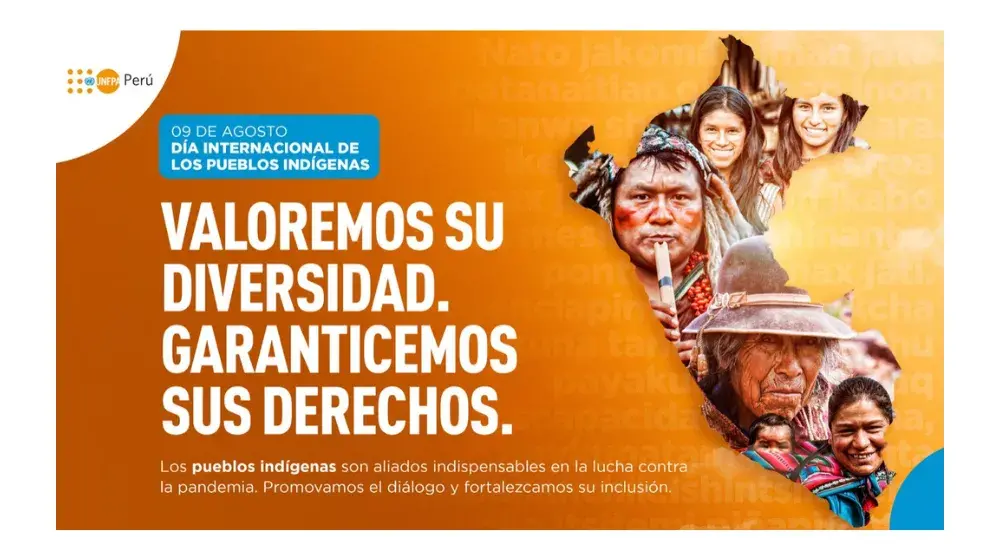Indigenous women have always been leaders in their communities. This year’s International Day of the World’s Indigenous Peoples, celebrated on 9 August, focuses on their vital role in preserving and transmitting Indigenous scientific and technical knowledge.
Indigenous knowledge comprises complex, dynamic systems of knowledge and ways of knowing developed by Indigenous peoples across the world, through their long histories of interacting with and adapting to their environments.
While the world’s Indigenous peoples represent over 5,000 different groups across 90 countries, Indigenous knowledge has commonalities across these diverse cultures. It is grounded in the interconnectedness among all the living things – including people – and the environment, and between body and spirit. The values of family, culture and community are paramount, along with the integrity, reciprocity and cooperation needed for survival.
Traditional knowledge takes a long-term perspective, making sustainability a key factor in all decisions. Passed down through oral traditions, including through storytelling, it evolves constantly – enabling generations of Indigenous people to live sustainably amidst changing environments.
But as centuries of colonialism, genocide and systemic racism stripped Indigenous people across the world of their human rights – including their rights to life and self-determination – Indigenous knowledge has been devalued and disparaged. At the same time, it has been appropriated for profit, including by the pharmaceutical, tourism and fashion industries.
For survival and sustainability
Today, Indigenous women are at the forefront of work to reclaim the rights of Indigenous people and the integrity of their communities – and, as a core part of that work, to preserve, revive and transmit traditional knowledge.
All the world has a stake in their success. Indigenous knowledge is a source of sustainable solutions to global challenges including climate change, biodiversity loss, resource scarcity, food and water insecurity, conflict and violence, epidemics and other threats to health and well-being.
In the wake of COVID-19, it provides a foundation for a much-needed paradigm shift towards a holistic approach to development. It highlights our responsibility to restore balance in our relationship with the earth and each other, and to reflect deeply so that – in the words of Diné activist Janene Yazzie, Sustainable Development Program Coordinator for the International Indian Treaty Council – we may “understand what drastic behavioral changes are possible when it comes to the health, the resilience and the safety and security of humanity.”
Meanwhile, traditional knowledge – and Indigenous women’s leadership – continue to be critical for the survival and well-being of Indigenous communities themselves.
Indigenous women and girls across the world die during pregnancy and childbirth more often than other women, and face higher risks of violence and harmful practices, including sexual violence during armed conflicts, and labour exploitation. This heightened vulnerability stems from the intersecting oppressions they face, including discrimination and exclusion based on gender, ethnicity and the poverty that disproportionately affects Indigenous communities.
As a result, they have lower access to essential services and opportunities, including sexual and reproductive health services such as contraception and maternal health care. They are often excluded from decision-making – not only when it comes to policy decisions at the local, national and international levels, but also when it comes to decisions about their own bodies, lives and families.
Traditional knowledge informs lifesaving services
To support full and equal access to sexual and reproductive health and rights for Indigenous women and girls, along with freedom from violence, UNFPA partners with Indigenous organizations – especially women-led initiatives – to design and implement intercultural approaches to sexual and reproductive health, gender-based violence and harmful practices.
Intercultural approaches not only entail training health and social service workers to combat discrimination and increase cultural sensitivity – they make sure that Indigenous people, particularly women and girls, lead the design and delivery of policies and services.
Services cater to speakers of local Indigenous languages; engage communities and families; embrace traditional practices, technologies and medicines; and partner with Indigenous practitioners such as traditional birth attendants.
“Traditional midwifery goes beyond assisting with a delivery,” says Ledy Manuela Mosquera Moreno, a nurse and executive director of the Association of the Interethnic Network of Midwifery Practitioners of the Department of Chocó, a UNFPA partner serving Indigenous and Afro-descendant communities in Colombia. “It is advising, accompanying, guiding women, families and the community in all matters of sexual and reproductive health.”
Such a holistic approach to health care has been pivotal to the success of UNFPA-supported maternal health initiatives in Bolivia, Peru and the Philippines as well. Intercultural approaches to gender-based violence and harmful practices, meanwhile – many of them led by Indigenous women’s organizations – have been implemented in countries including Cameroon, Mali, Mexico and Uganda.
Underpinned by strong links to ancestral knowledge, these intercultural approaches respect the bodily autonomy of Indigenous women and girls, strengthen their leadership and promote the self-determination of their communities – thereby saving lives and upholding human rights.


